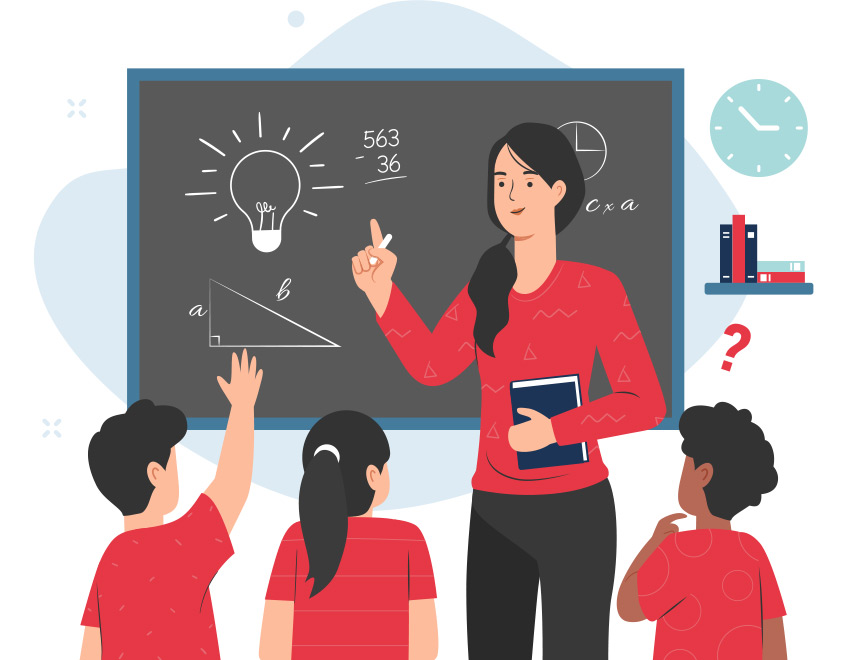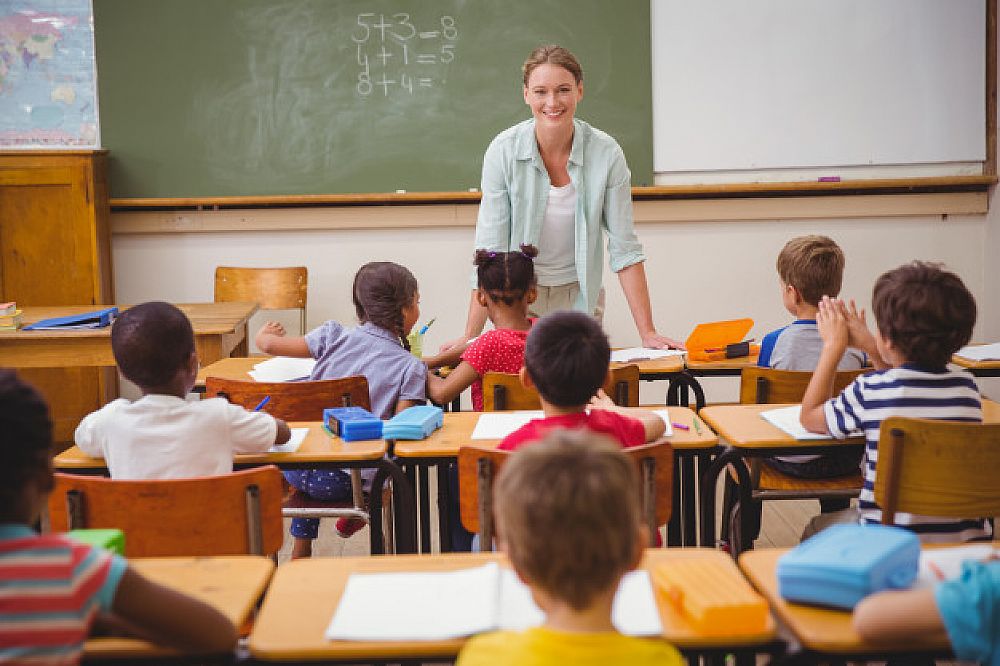Accelerate Learning with Primary Science Tuition Singapore for Young Minds
Accelerate Learning with Primary Science Tuition Singapore for Young Minds
Blog Article
Exploring the Different Training Strategies in Primary Science Education Today
The landscape of main science education and learning is developing, with different training strategies obtaining prominence in modern class. Inquiry-based learning, hands-on experiments, and the integration of technology are redefining just how instructors involve young minds. Furthermore, joint methods and distinguished direction are being employed to accommodate the varied needs of pupils, improving both engagement and understanding. As we check out these methods, questions arise concerning their effectiveness and the effects for future educational methods. What might these shifts in strategy mean for the following generation of learners?
Inquiry-Based Knowing
Inquiry-Based Understanding (IBL) is a pedagogical strategy that encourages trainees to discover scientific ideas with questioning, investigation, and hands-on trial and error. This method emphasizes the function of trainees as energetic individuals in their learning, promoting essential thinking and analytical abilities. By involving with real-world inquiries, students end up being determined and interested, which improves their understanding of scientific principles.
In IBL, instructors function as facilitators, assisting pupils as they navigate their inquiries as opposed to delivering info straight. This student-centered approach enables differentiation, accommodating numerous learning styles and rates. Pupils create abilities in developing theories, making experiments, and analyzing information, which are essential for scientific proficiency.
In addition, IBL cultivates cooperation among trainees, motivating them to share searchings for and concepts. This collective inquiry advertises social abilities and a feeling of area within the class. Moreover, the procedure of query motivates durability, as students discover to welcome failing as a tipping rock towards understanding.
Hands-On Experiments
Hands-on experiments are an essential component of reliable scientific research education, enhancing the principles of inquiry-based knowing. These experiments allow pupils to engage straight with scientific concepts, cultivating a deeper understanding through experiential understanding. By adjusting materials and observing end results, young students can comprehend abstract theories in tangible methods.
Such tasks advertise crucial thinking and problem-solving abilities, as students assume end results, conduct experiments, and evaluate results. This procedure encourages them to ask concerns, improve their understanding, and develop a clinical state of mind. Furthermore, hands-on experiments can be customized to varied learning styles, ensuring that all students have the possibility to engage meaningfully with the material.
In addition, hands-on experiments often motivate partnership amongst peers, promoting team effort and interaction abilities. Operating in teams makes it possible for pupils to share concepts, discuss findings, and gain from each other, which enhances their overall educational experience.
Incorporating hands-on experiments into the main scientific research educational program not only enhances the finding out atmosphere yet additionally grows a long-lasting passion in scientific research. By actively participating in their education, trainees are most likely to establish a passion for clinical inquiry that prolongs beyond the classroom.

Innovation Combination
Incorporating innovation into primary science education has become increasingly important in fostering student engagement and improving discovering results. The usage of electronic tools, such as interactive simulations, online laboratories, and instructional software, offers trainees with chances to explore scientific ideas in cutting-edge methods. These sources facilitate a deeper understanding of complex topics by permitting learners to picture and control variables that would be impractical in a typical class setting.
Furthermore, technology assimilation motivates individualized discovering experiences. Students can proceed at their very own pace, taking another look at difficult concepts through multimedia sources, which deal with different understanding designs. This adaptability not just supports private development yet likewise grows a sense of freedom in learners.
Additionally, modern technology serves as a bridge to real-world scientific research, connecting trainees with existing research and specialist contributions. Access to on-line databases and scientific journals broadens trainees' viewpoints on scientific query and cultivates vital assuming skills.
Collaborative Knowing
Joint learning plays an important function in key scientific research education by promoting team effort and interaction abilities among students. This technique encourages learners to interact, share knowledge, and engage in analytical, which boosts their understanding of clinical principles. By participating in group activities, trainees discover to verbalize their concepts, listen to varied perspectives, and work out options, all their explanation of which are vital abilities in both real-world and scholastic contexts.

Research suggests that collaborative understanding can cause increased inspiration and engagement in scientific research topics, as students locate enjoyment in common experiences (primary science tuition Singapore). Furthermore, this approach prepares trainees for future joint undertakings, furnishing them with the abilities necessary for efficient teamwork in greater education and learning and professional atmospheres. Inevitably, accepting joint learning in primary scientific research education and learning can significantly enrich the knowing experience and promote a deeper understanding of clinical query
Set Apart Direction

Separated guideline can show up in various ways, such as differing the content, procedures, or products of learning. Educators might utilize tiered projects that supply varying levels of intricacy, permitting trainees to work at their respective preparedness levels. Additionally, adaptable organizing strategies can facilitate collaboration among pupils with different abilities, fostering peer knowing.
Evaluation plays an important function in this approach, as it notifies instruction and aids teachers recognize each student's unique requirements. Formative analyses, such as observations and tests, can guide instructors in adjusting their methods to enhance finding out results. primary science tuition Singapore. Inevitably, by carrying out separated instruction in key science education and learning, educators can grow a more fair and effective learning atmosphere, encouraging all students to reach their full possibility in understanding clinical sensations
Conclusion
In summary, the varied training approaches in main scientific research education and learning, including inquiry-based knowing, hands-on experiments, modern technology integration, collective discovering, and set apart instruction, collectively add to a much more efficient discovering setting. These methods promote important reasoning, problem-solving abilities, and a much deeper understanding of scientific ideas. By implementing these approaches, educators can create supportive and engaging classrooms that deal with the different requirements of pupils, inevitably promoting a long-lasting rate of interest in science and enhancing academic achievement.
Inquiry-Based Understanding (IBL) is a pedagogical method that motivates students to explore clinical ideas with questioning, investigation, and hands-on experimentation.Joint discovering plays a crucial role in key scientific research education by fostering synergy and interaction skills amongst pupils.Research study indicates that joint discovering can lead to enhanced motivation and engagement in science topics, as trainees find enjoyment in common experiences.In promoting an inclusive learning setting, set apart learn the facts here now direction emerges as a key strategy to fit the diverse demands and capabilities of students in primary check that scientific research education and learning. Inevitably, by implementing set apart direction in primary scientific research education, instructors can cultivate a more reliable and equitable discovering setting, empowering all pupils to reach their full capacity in recognizing scientific sensations.
Report this page